|
Over the years, the BFI have released several compilations of British Transport Films (BTF) on DVD. This two-disc set, comprising fourteen short films, is the fifteenth and final edition. They have also released two Best Of compilations on Blu-ray, and I reviewed the second one for this site here.
BTF had been in operation since 1949 and produced training films and travelogues and industrial films, some of which were released in cinemas as supporting shorts. BTF put out some seven hundred short films during its existence, with some later more famous filmmaking talent cutting their teeth on these productions. As can be seen from some of the films in this set, there are some well-known names in front of the cameras too. Some of the films are fly-on-the-wall documentary (usually with narration), while others use dramatisation, with professional actors on screen.
By the late 1960s, times were changing in the rail industry. Plans were afoot to build a Channel Tunnel, so making Europe a mere train ride away. Electric railways came to the fore during the oil crisis of 1973. Trains were planned and built to travel faster and faster, with journeys becoming much shorter. BTF was moving away from theatrical distribution of its films: only one of the films in this set appears to have seen the light of a projector lamp or carbon-arc in commercial cinemas. The films were more and more shown non-theatrically, most likely in 16mm rather than the more expensive and cumbersome 35mm, and their production gauge switched more and more to the former than the latter. And a new technology, video, appeared.
All aboard!
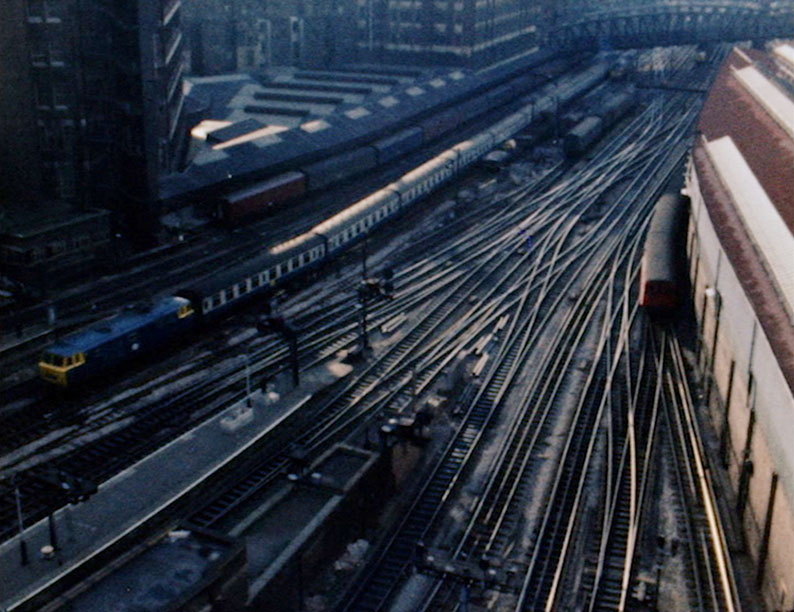
In 1968 at Paddington Station, which had been open for 130 years and was originally designed by Isambard Kingdom Brunel, something needed to be done. The track approach to the station was old, and in a time of more and more transport by train, more and more inefficient. Trains were effectively operating on two networks, one arriving and the other departing, which had been the case since the beginning. The task of rebuilding the track and remodelling the signals and in general modernising the station was enormous but it was done in five months. New sidings were built and the curvature of the track was eased. Disruption to the thousands of people using the station day to day was minimised by a series of partial closures, fully communicated in advance. This film is a clear exposition of all that was required, its narration being a conversation between two voices.
From 1969, this is the ninth in a series of Rail Reports, and in its fifteen minutes brings us a number of items. Motorail was a service enabling you to take your car by train, so avoiding traffic jams, and we begin with a novel method of advertising it: skydiving. One of the Motorail destinations was Scotland, and we see people on a golfing holiday in St Andrews, in a hotel owned by British Rail and included in their package deals. From there, we have the launch of the Antrim Princess, taking you from Stranraer to Larne. Then we go over to Harwich for the freight service to Zeebrugge. Given the increasing weight they are called to bear, rails have to be strengthened. To coordinate all this train travel, the control office in Beckenham is then put on show. Finally, we reach Euston Station and the opening of its new concourse by the Queen.
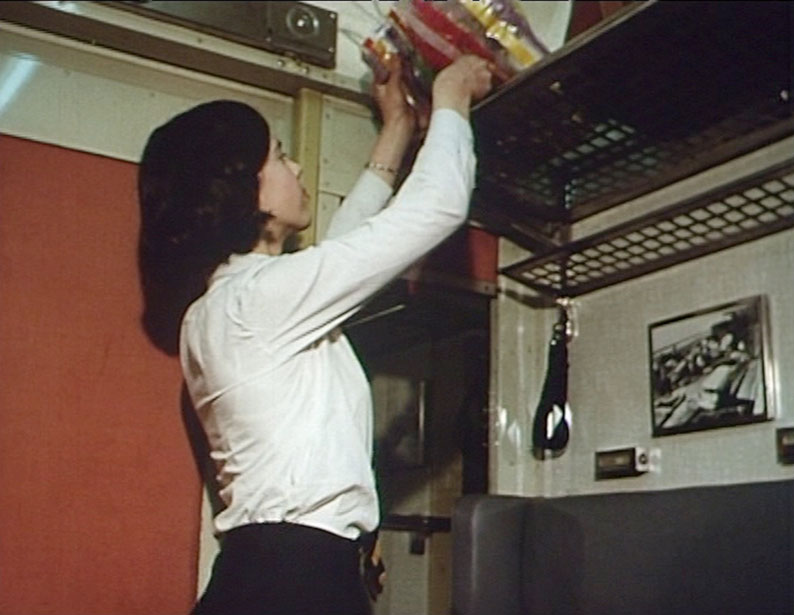
This 1969 film feels like something from a different age. While no doubt school trips abroad do happen nowadays – though Covid may have had different plans, and possibly Brexit too – I suspect they aren't quite like this any more. Thirty-five pupils and two teachers from Skipton Girls' High School leave the snowy Yorkshire Dales and end up in even more snowy Interlaken, Switzerland. Being a BTF production, much of the emphasis is on the means of travelling there. So we have a train journey to London, across the capital by Tube, then a train to Dover with a ferry to Boulogne getting them on the overnight train to their destination. However, much of the interest in this fly-on-the-wall documentary (with what must have been some cramped spaces to fit a 35mm camera) is of the girls occupying themselves on the journey, making friends and otherwise bonding – no doubt necessary in sleeper cabins with six bunks – and no doubt learning a few lessons in independence. Once they arrive, there are other means of transport to negotiate, including lake cruises and cable cars taking them 10,000 feet above sea level. Hard to think that some of these girls would now be the grandmothers of present-day schoolchildren who might hope to make a trip like this.
Another Rail Report, the tenth, and another pot-pourri of small items from 1970 in a quarter of an hour. The Princess Royal takes a British Rail train to the hovercraft terminal in Dover and gets to name the latest craft...The Princess Anne. Meanwhile, in Derby, scientists are developing a plasma torch, which attains temperatures in five figures to help clear leaves and other rubbish from the line, so helping trains keep to the rails. And in Glasgow, there are new developments in diesel oil. Signallers in Old Oak Common keep in touch with staff in the wild with new-fangled portable radios. New signal boxes are up and running. And we have a glimpse of a train of the future, the APT (Advanced Passenger Train), able to travel at up to 125mph. Plenty here to keep the rail buff of fifty-three years ago up to the minute.
SELNEC stands for South East Lancashire North East Cheshire and was the largest public transport system in Britain outside London, covering 700 square miles and serving nearly three million people in Manchester and the surrounding towns of Bolton, Rochdale, Oldham and others. There's a familiar voice doing the narrating duties, namely that of Michael Aspel. We go round the conurbation for a typical day in 1972, taking in buses and local trains. We also have a look at the then-current proposal, the Picc-Vic line, an underground railway linking Manchester Piccadilly and Manchester Victoria stations, proposed to take five years to complete. (It was however to be abandoned in 1977.)
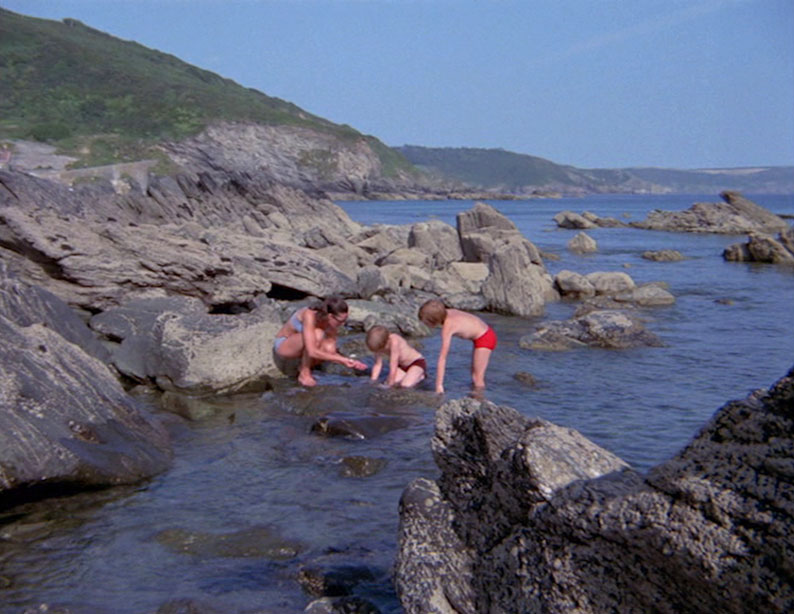
Michael Aspel again, in a 1974 attempt to entice those on the continent to travel to the UK, via car ferries from Europe to Kent. A short look at the amenities on the ferries themselves is followed by a hymn to driving on British roads. Yes, you will have to get used to driving on the left, but British highways are quieter and their motorists generally more considerate (apparently). Once you are on your way, there are country hotels and pubs you can visit and spend the night in. And think of the sights you can see, including Stonehenge, Tintern Abbey and Hadrian's Wall among them. The Lake District awaits you and there are stately homes you can wander around. All in full colour. If you're travelling even further afield, you can use the Motorail service and let the train take the strain, and the weight of your car. This was made a year after the UK joined what was then the European Economic Community and post-Brexit you wonder if quite such a sales pitch would be made today.
| KEEP YOUR BUSINESS MOVING |
|
The shortest film in the set showcases British Rail's Inter-City Conference and Exhibition Services, which allowed you to transport all the items you needed for such an event to any of 250 locations in the UK and Europe. You could set up your own exhibition on the train itself, so you could join at one end and walk through the train and the event and then relax in the bar at the other end, while the train was in motion. For European destinations, the trains would roll onto the ferries and roll off again at the other end. Clearly some major companies found the effort and expense worth their while.
And that's the end of Disc One.
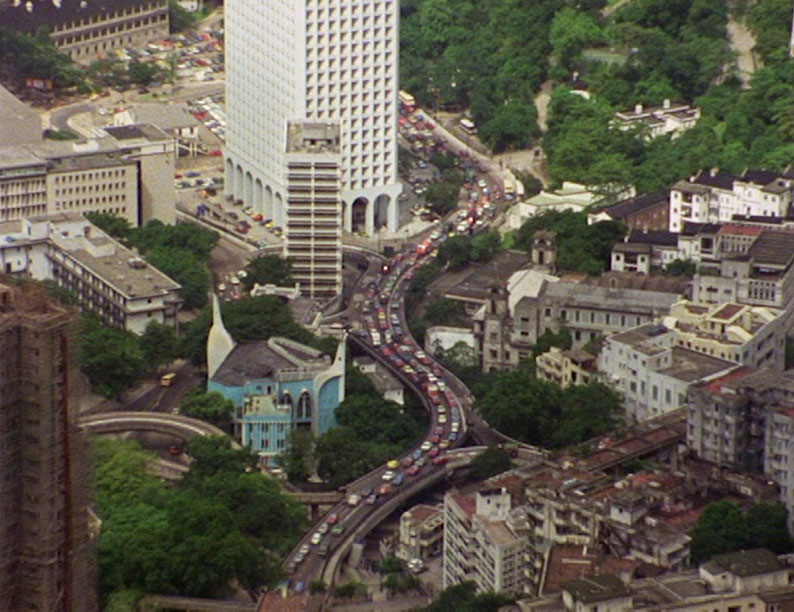
Disc Two begins with an example of a film where BTF collaborated with a transport company. The result is as much advertisement as documentary. We're a long way from the UK, in the then British colony of Hong Kong, with its own metro system (Mass Transit Railway) which runs along the bed of the harbour from the island to the mainland. And the trains were supplied by Metro-Cammell back in the old country. After a beginning in the Far East, we return to the company's headquarters where we see the trains being manufactured, noting differences between those bound for Hong Kong to those intended for the Tyne and Wear metro system and the "Clockwork Orange" in Glasgow.
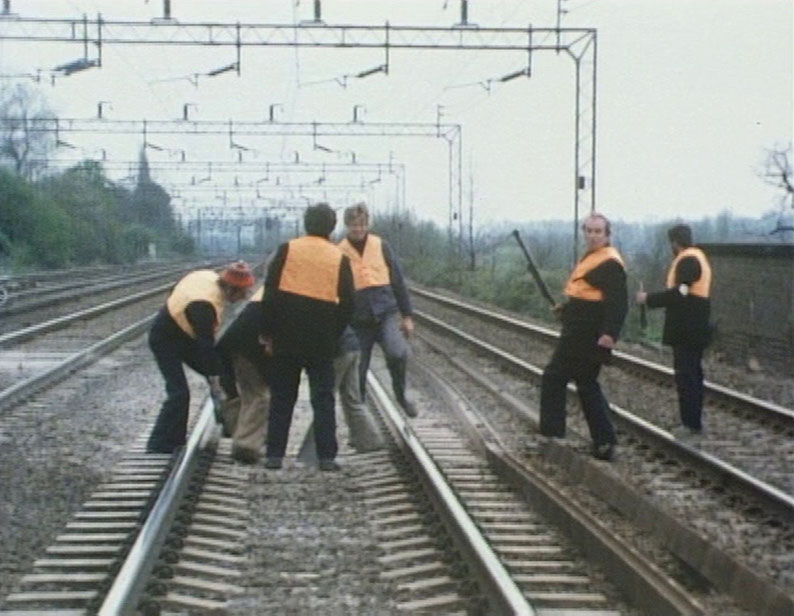
Soon after this starts, it's clear that this is a different type of film, with a clear double meaning in the title. Narration gives way to narrator Brian Peck talking directly to camera. The purpose of this film is to give a runthrough of safety procedures for gangs working on the tracks – mainly keeping to the sides of the lines and never in the six feet between two lines, just in case two trains come past at the same time. Made in 1979, this was intended for induction courses but was also used to refresh the knowledge of more experienced train gangs.
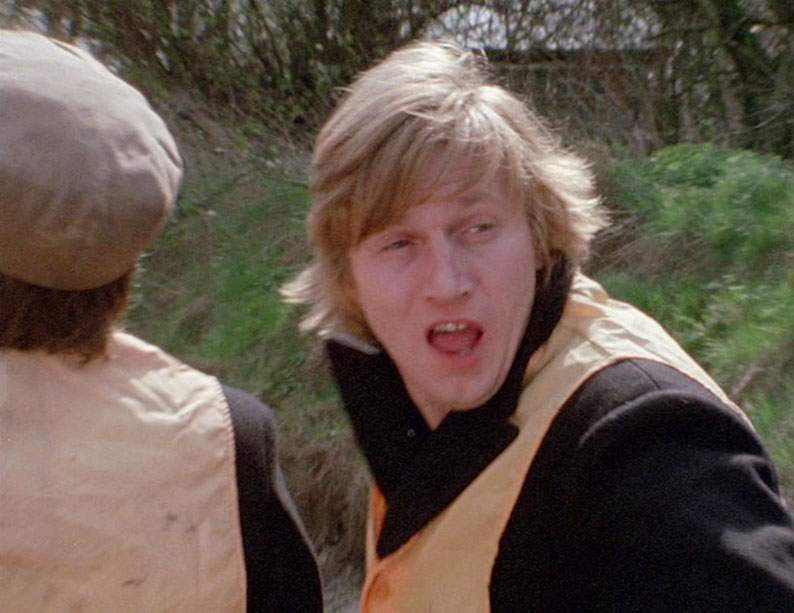
Made a year later, this is more of the same, but at first it looks like fly-on-the-wall of a track gang at work. But then the camera pulls back and Brian Peck tells us this is a reconstruction of a real-life incident, and the gang we see are played by actors. (And they are.) The emphasis of this film is the necessity of collaboration and of someone taking charge – with fatal consequences if this doesn't happen. There's some surprisingly robust language in this film, with even an F-word cut short at a particular point, twice.
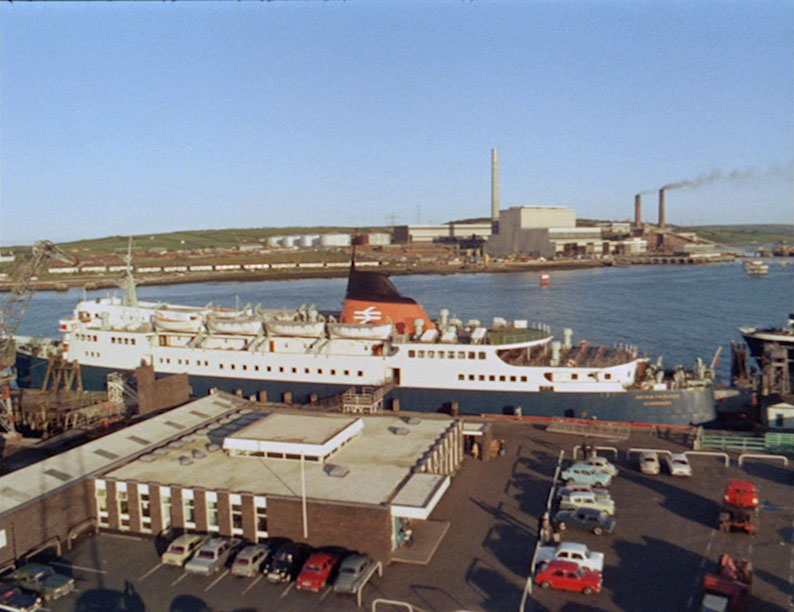
Pedantic filmographic note: that ellipsis is made up of the British Rail logo rather than dots, but I'm not going to reproduce that here. We're in 1981, and British Rail, or rather its subsidiary Railfreight, is getting to grips with TOPS, or Total Operations Processing System. This is a computer-based system, with its nerve centre in London, able to communicate with any of 134 freight centres all around the country. No doubt state of the art at the time, this is likely instant nostalgia for anyone computer-aware more than four decades ago, given the size and bulk of the computers on display. And if you want to feel even more ancient, Railfreight's customers can even access the system using that nifty old system called telex. The bigger customers can even have their own dedicated terminals. Nowadays, you suspect you could run this using much less space and rather more computer power, but tempus fugit and all that.
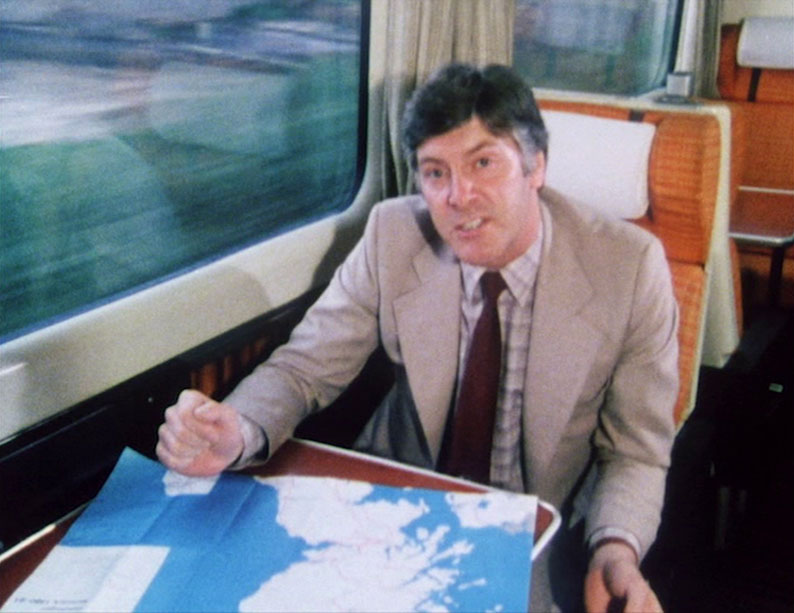
This film features someone who would be a familiar face to those of a certain age: Peter Purves, then four years (in 1982) after his Blue Peter presenting gig. If you're more senior than me, he would also be familiar as a companion to William Hartnell's Doctor Who. Here he gets to sit back and let the train take the strain, enjoying waiter service at his seat as he travels in the new Advanced Passenger Train as it goes up the electrified tracks from London to Glasgow at over 100 mph. However, a straight-line route was not possible and inclines and twists and turns had to be overcome. The solution – a train that tilts as it navigates those bends. The speed – projected up to 150 mph – necessitated an updated braking system so that passengers didn't find their faces in the backs of the seats in front of them. When in operation, the journey between the two cities was projected to take a mere four hours. However, as this film was being made, support for the ATP project was waning and it was finally abandoned, with this film rarely being shown.
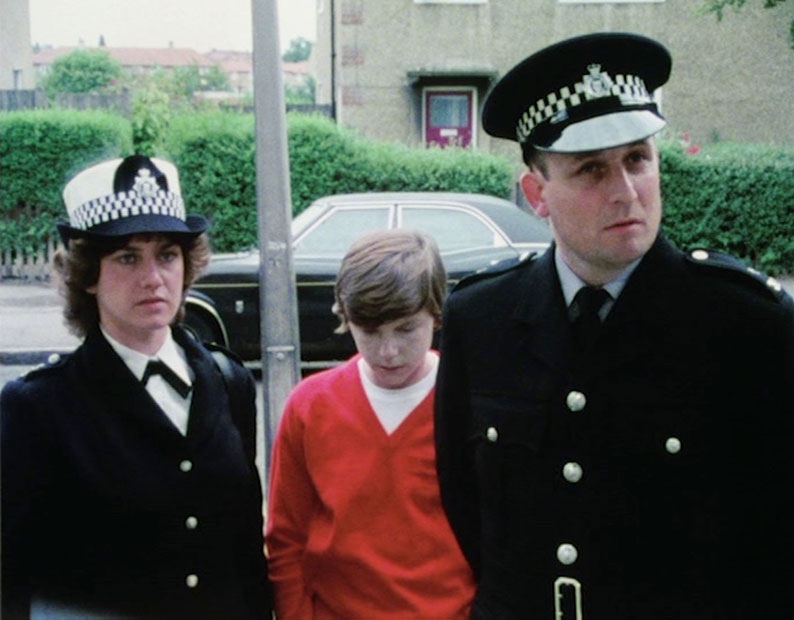
Another pedantic filmographic note: this film is listed on the disc menus and the booklet as Robbie (Overhead Lines) but it's simply Robbie on screen. This film uses the template of the films made by the Central Office of Information (with several disc compilations available), using actors in a cautionary tale of why you shouldn't cross railway tracks and why you certainly should be aware of overhead power lines, if that missing parenthetical title isn't too much of a clue. It's certainly not worried about likely traumatising a generation of 1970s and 1980s children. Shots of the title character playing football carefully set up the film's ending.
Robbie was originally made in 1979, following the BTF's previous and notorious The Finishing Line. It was originally presented by Peter Purves but this revised version from 1986 features a slightly later icon of many a British childhood, Keith Chegwin, who appears on camera at the start and narrates the rest of the film.
| THE CHANNEL TUNNEL: TOMORROW'S WAY |
|
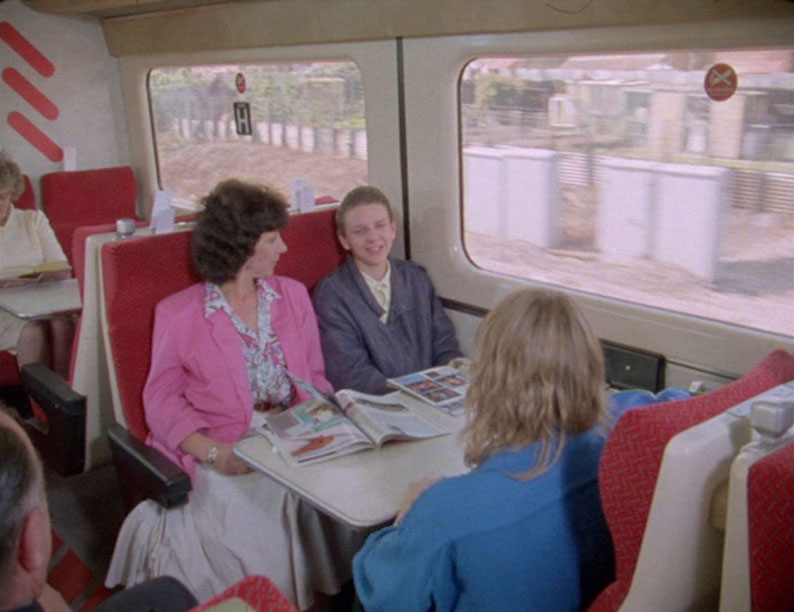
And finally, a look into the future from 1986. The signing of the Treaty of Canterbury by UK Prime Minister Margaret Thatcher and French President François Mitterrand, put into effect plans to build a tunnel under the Channel and so linking Britain and France. Such a tunnel had been mooted back in the nineteenth century, but now it was underway and was in fact completed in 1994. The film follows the journeys of three families (played by actors) from and to the Continent, from Manchester, Wales and London...and how much easier these journeys would be with the Tunnel in place. BTF had largely been wound up in 1982, but continued for a few more films. They also produced work shot on video (see this disc's extras for an example), but one last film shot on film was made, this one.
The British Transport Films Collection Volume 15: Life on the Line is a BFI release comprising two dual-layered DVDs encoded for all regions. There are seven films on each disc, with the one on-disc extra on Disc Two. As this set comprises documentaries which won't earn more than a PG certificate (though Who's in Charge? pushes that), it has been exempted from BBFC certification, though one film included was given a certificate on its original cinema release – A Tale Out of School, a U.
The films were shot in 35mm (Top Levels of Transport, A Tale Out of School, Our Business is Moving, Sea Road to Britain) or 16mm (everything else), all in colour, and are presented on disc in a ratio of 1.33:1. That's certainly as intended as these films were almost all exhibited non-theatrically, and the 35mm-shot ones may well have been shown extensively in 16mm – though A Tale Out of School would have been shown wider in UK commercial cinemas, most likely in 1.75:1. All the films have been scanned at 2K resolution from original elements. The 35mm items are strongly coloured with filmlike grain. Inevitably, the 16mm-originated films are softer and grainier, but that's inherent in the source material. There is occasional damage such as speckles and minor scratches, but nothing too distracting.
The sound is mono in all cases, rendered as Dolby Digital 2.0. There are no issues with clarity that these ears could discern, and music and sound effects are suitably well mixed. Unfortunately there are no subtitles for the hard of hearing available.
King of the Road (10:57)
BTF Video was a subsidiary of the main organisation which produced short films on what was actually not film, the (by 1986) quite well established medium of video, though many of them continued to be shot on 16mm if later edited on tape. This is a promotional film for Rail Drive, an initiative which combined car hire at both ends of the journey and a train in between – much less stressful than sitting in traffic jams for the duration.
Booklet
The BFI's booklet, with the first pressing of this release, runs to twenty pages. As this is the last DVD set of the British Transport Films Collection, Steven Foxon's two-page introduction inevitably has a valedictory tone, as this set covers the last almost two decades of BTF's productions. After that, there are notes on and credits for each of the films, and the one extra, by Foxon and Stephen Edwards.
Given that there have been fourteen previous volumes of BTF films released by the BFI, its audience is clear and that audience won't need any prompting to pick up this two-disc DVD set. Enjoyment will of course depend on your level of interest in the subject matter, but the best films here are engaging enough for a more general audience. I can't imagine anyone sitting in a cinema watching A Tale Out of School, say, would find the experience a waste of time while they waited for the feature film to start. Subtitles would have been welcome, but otherwise the films are well-presented on these discs, and if you are interested make sure you buy a first pressing as there is plenty of supplementary information in the booklet.
|